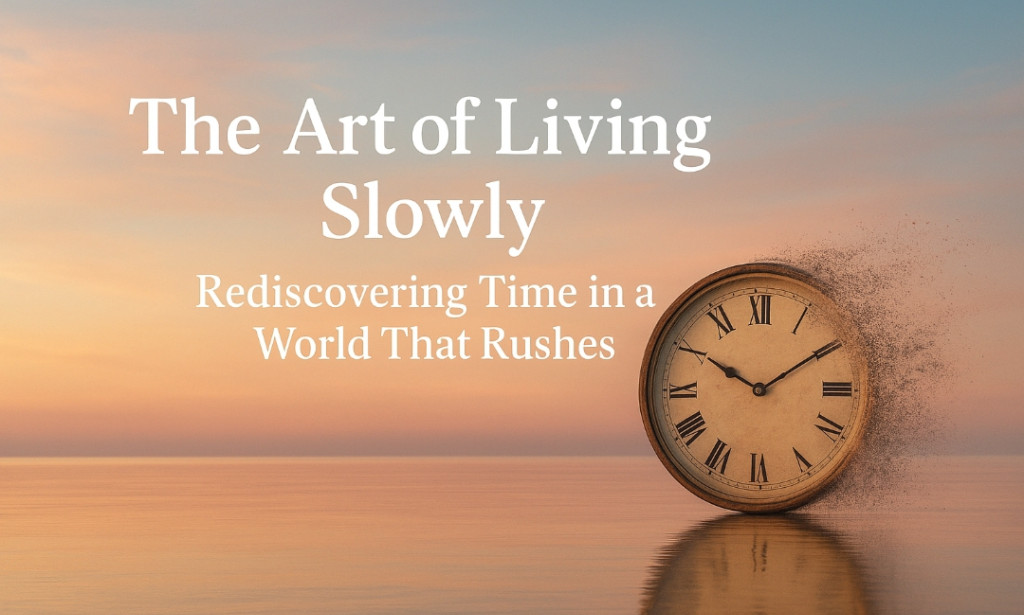We live in a century that glorifies speed. Fast food, fast cars, fast results. We scroll through lives as if they were disposable, mistaking motion for meaning. Yet beneath the noise of constant notifications, a quiet truth waits to be rediscovered — life was never meant to be lived in a hurry.
There was a time when mornings began with stillness. In many African homes, dawn was sacred — marked by the smell of burning firewood, the rhythm of distant drums, the call of roosters greeting the sun. The world would wake gently, with birdsong instead of alarms, and people greeted the day with gratitude instead of anxiety. Today, our mornings begin with alerts, reminders, and a race against the clock — and somehow, we call that progress.
To live slowly is not to retreat from ambition or abandon productivity. It is to move with intention, to savor the small and the sacred. It is to understand that time is not an enemy to be conquered but a companion to be cherished. The pace of your life determines the depth of your living.
---
Slowness as Rebellion
In a culture that rewards busyness, slowness becomes an act of rebellion. Choosing to walk when others run is an expression of freedom. When you pause to watch the sunset, to share an unhurried conversation, or to cook a meal with your hands instead of your phone, you are reclaiming your right to be present.
We often think of success as acceleration — more things, faster. But the most profound growth happens in stillness. Flowers do not bloom in haste, and neither do human souls.
In many African traditions, wisdom was not measured by how quickly one spoke, but by how deeply one listened. Silence itself was a form of intelligence — the quiet space where the ancestors whispered truth. To live slowly, then, is not backwardness; it is balance.
---
The Forgotten Rhythm
Our ancestors understood rhythm. They worked with the land, not against it. They rose with the sun and rested with the moon. There was music in their movements — a harmony between the inner and outer world.
Modern life has broken that rhythm. We are constantly in motion but rarely in flow. The result? Exhaustion without fulfillment, movement without meaning. To return to rhythm is to remember that every life has its own tempo — and peace begins when you find yours.
Perhaps this is why the sound of drums still stirs something ancient in us. It reminds us that time is not linear but cyclical — that rest and motion, like day and night, are both sacred.
---
Living as Art
Living slowly transforms ordinary moments into art. It teaches us to see again — the shimmer of rain on zinc rooftops, the scent of roasted corn by the roadside, the laughter of children running barefoot through red earth. These are not trivial details; they are the texture of being alive.
In slowing down, we begin to notice not just the world around us, but the one within. Reflection becomes a habit. Gratitude becomes a rhythm. Presence becomes a form of prayer.
---
A Life That Feels Like Life
The art of living slowly is, at its heart, a return — a remembering of what it means to be human. It is a conscious refusal to be consumed by consumption. It asks us to measure our days not by what we achieve, but by how deeply we experience.
So breathe. Walk. Listen. Let time unfold like poetry. Let your life be something you live, not something you rush through.
Because in the end, it’s not the speed that matters — it’s the soul.
---


Yet beneath the noise of constant notifications, a quiet truth waits to be rediscovered — life was never meant to be lived in a hurry.
You must be logged in to post a comment.